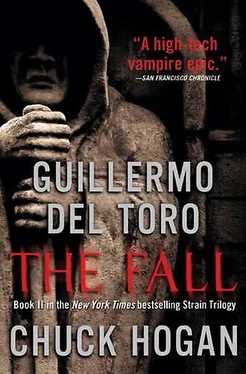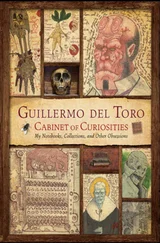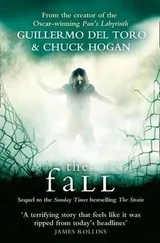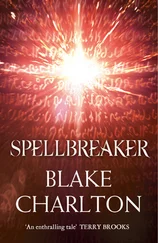The year was 1972. Setrakian was forty-six years old.
“Though I can assure you he is very wealthy,” the broker continued. “Do you like money very much, Monsieur Pirk?” 1 do.
“Then you will like Mynheer Blaak very much. This volume he seeks, he will pay you quite handsomely. I am authorized to say that he will match your price, which, itself, I would characterize as aggressive. This makes you happy?” Yes.
“As it should. You are fortunate indeed to have acquired such a rare volume. I am sure you are aware of its provenance. You are not a superstitious man?”
“In fact, I am. By trade.”
“Ah. And that is why you have chosen to part with it? Myself, I think of this volume as the book version of ‘The Bottle Imp.’ You are familiar with the tale?”
“Stevenson, wasn’t it?”
“Indeed. Oh, I hope you aren’t thinking that I am testing your knowledge of literature in order to gauge your bona fides. I reference Stevenson only because I recently brokered the sale of an extremely rare edition of The Master of Ballantrae. But in ‘Imp,’ as you evidently remember, the accursed bottle must be sold each time for less than it was purchased. Not so with this volume. No, no. Quite the opposite.”
The broker’s eyes flashed with interest at one of the brightly lit display windows they strolled past. Unlike most of the other showcases along De Wallen, the red-light district of Amsterdam, the occupant of this particular window was a ladyboy, not the usual female prostitute.
The broker smoothed his mustache and redirected his eyes to the brick-paved street. “In any event,” he continued, “the book has a troubling legacy. I myself will not handle it. Mynheer Blaak is an avid collector, a connoisseur of the first rank. His tastes run to the discriminating and the obscure, and his checks always clear. But I feel it is only fair to warn you, there have been a few attempts at fraud.”
“I see.”
“I, of course, can accept no responsibility for what became of these crooked sellers. Though I must say, Mynheer Blaak’s interest in the volume is keen, because he has paid half of my commission on every unsuccessful transaction. In order that I might continue my search and keep potential suitors arriving at his door, so to speak.”
The broker casually pulled out a pair of fine white cotton gloves and fitted them over his manicured hands.
“If you will forgive me,” said Setrakian, “I did not journey to Amsterdam to walk its beautiful canals. I am a superstitious man, as I stated, and I should like to unload myself of the burden of such a valuable book at the earliest convenience. To be frank, I am even more concerned about robbers than curses.”
“I see, yes. You are a practical man.”
“Where and when will Mynheer Blaak be available to conduct this transaction?”
“The book is with you, then?”
Setrakian nodded. “It is here.”
The broker pointed to the twin-handled, twin-buckled portmanteau of stiff, black leather in Setrakian’s hand. “On your person?”
“No, much too risky.” Setrakian moved the suitcase from one hand to the other, hoping to signal otherwise. “But it is here. In Amsterdam. It is near.”
“Please forgive my boldness then. But, if you are indeed in possession of the Lumen then you are familiar with its content. Its raison d’être, yes?”
Setrakian stopped. For the first time he noticed they had wandered off the crowded streets and were now in a narrow alley with no one in sight. The broker folded his arms behind his back as if in casual conversation.
“I do,” said Setrakian. “But it would be foolish for me to divulge much.”
“Indeed,” said the broker. “And we don’t expect you to do so but — could you effectively summarize your impressions of it? A few words if you would.”
Setrakian perceived a metallic flash behind the broker’s back — or was it one of the man’s gloved hands? Either way, Setrakian felt no fear. He had prepared for this.
“Mal’akh Elohim. Messengers of God. Angels. Archangels. In this case, Fallen Ones. And their corrupt lineage on this Earth.”
The broker’s eyes flared a moment, then were still. “Wonderful. Well, Mynheer Blaak is most interested to meet you, and will be in contact very soon.”
The broker offered Setrakian a white-gloved hand. Setrakian wore black gloves, and the broker certainly felt the crooked digits of his hand as they shook — but, aside from an impolite stiffening, did not otherwise react. Setrakian said, “Shall I give you my local address?”
The broker waved his gloved hand brusquely. “I am to know nothing. Monsieur, I wish you every success.” He was starting away, back the way they came.
“But how will he contact me?” asked Setrakian, after him.
“I know only that he will,” the broker responded over a velvet-lined shoulder. “A very good evening to you, Monsieur Pirk.”
Setrakian watched the dapper man walk on, long enough to see him turn in toward the window they had passed and knock pleasantly. Setrakian turned up the collar of his overcoat and walked west, away from the inky water of the canals toward the Dam Platz.
Amsterdam, being a city of canals, was an unusual residence for a strigoi, forbidden by nature to cross over moving water. But all his years spent in pursuit of the Nazi doctor Werner Dreverhaven, the camp physician at Treblinka, had led Setrakian into a network of underground antique booksellers. That, in turn, had put him on the path to the object of Dreverhaven’s obsession, this extraordinarily rare Latin translation of an obscure Mesopotamian text.
De Wallen was known more for its macabre mix of drugs, coffee bars, sex clubs, brothels, and window girls and boys. But the narrow alleys and canals of this port city were also home to a small but highly influential group of antique book merchants who traded manuscripts all over the world.
Setrakian had learned that Dreverhaven — under the guise of a bibliophile named Jan-Piet Blaak — had fled to the Low Countries in the years following the war, traveling throughout Belgium until the early 1950s, crossing into the Netherlands and settling in Amsterdam in 1955. In De Wallen, he could move freely at night, along paths proscribed by the waterways, and burrow undetected during the day. The canals discouraged his staying there, but apparently the lure of the bibliophile trade — and the Occido Lumen in particular — was too seductive. He had established a nest here, and made the city his permanent home.
The middle of the town was island-like, radiating from the Dam Platz, surrounded in part, but not bisected by, the canals. Setrakian walked past three-hundred-year-old gabled buildings, the fragrance of hash smoke wafting out the windows with American folk music. A young woman rushed past, hobbling in one broken heel, late for a night of work, her gartered legs and fishnet stockings showing beneath the hem of a coat of faux mink.
Setrakian came upon two pigeons on the cobblestones, who did not alight at his approach. He slowed and looked to see what had captured their interest.
The pigeons were picking apart a gutter rat.
“I am told you have the Lumen? ”
Setrakian stiffened. The presence was very near — in fact, right behind him. But the voice originated inside his head.
Setrakian half-turned, frightened. “Mynheer Blaak?”
He was mistaken. There was no one behind him.
“Monsieur Pirk, I presume?”
Setrakian jerked to his right. In the shadowy entrance to an alleyway stood a portly figure dressed in a long, formal coat and a top hat, supporting himself with a thin, metal-tipped cane.
Setrakian swallowed his adrenaline, his anticipation, his fear. “How did you ever find me, sir?”
Читать дальше
Конец ознакомительного отрывка
Купить книгу












